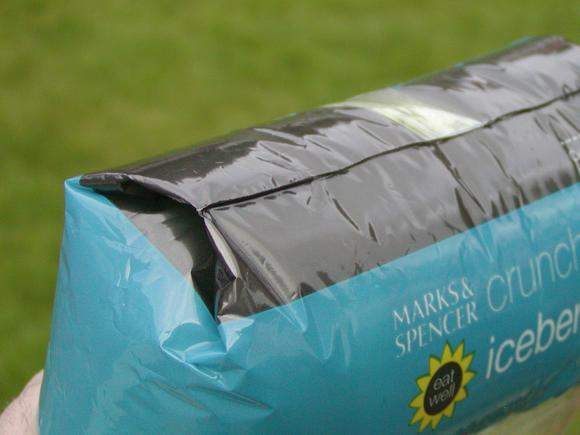Marks & Spencer is the first retailer to adopt a technology for sealing flexible film bags and pouches which it is claimed can cut by at least 10% the volume of packaging material used in such packs.

Developed with funding from the Waste & Resources Action Programme (WRAP), the “Integrity Seal” technology has been perfected by International Food Partners (IFP) and UK flexible film sealing system specialist Ceetak. IFP also worked with salad supplier Tilmanstone Salads and M&S. The technology uses heat to melt the film to make a welded seal on the pack ends just 1mm wide rather than using the “traditional” method of crimping, which the project partners say results in a much wider seal. Trials have, the project partners say, shown that Integrity Seal produces a “superior seal” compared with crimping, in turn increasing shelf-life of certain types of salad from 5-8 days. WRAP says consumers have also given the packs a favourable reception; those questioned felt particularly that the new seal looked “neater” than traditional crimped bags.
WRAP is now producing a full technical report and case study on the to show how the technology can be “easily applied” in a range of businesses.
WRAP project manager Andrew Parry says: “This new technology could be applied across a wide range of product packs, from salad and snack bags to cosmetics and DIY products. It reduces the amount of material used for each bag, and can keep product fresher for longer, so has the potential to divert a substantial amount of packaging material and food waste from landfill sites.”
Marks & Spencer is the first retailer to adopt the Integrity Seal technology, designed for more efficient sealing of flexible film bags
M_S_salad_bag_for_report
